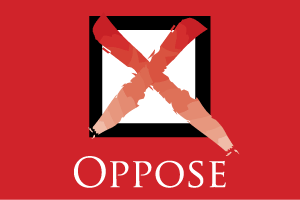 A California Chamber of Commerce-opposed proposal to ban political contributions from certain business entities awaits action by the state Assembly.
A California Chamber of Commerce-opposed proposal to ban political contributions from certain business entities awaits action by the state Assembly.
AB 83 (Lee; D-San Jose) is an unconstitutional proposal that bans corporations with 50% or more of foreign investment from contributing to campaigns or making independent expenditures.
The bill was resurrected from the Assembly Inactive File at the beginning of this year.
In opposing the bill, the CalChamber points out that AB 83 is a dramatic expansion of the California Political Reform Act of 1974. If enacted, AB 83 will include currently legal and legitimate contributions, expenditures or independent expenditures related to an election or ballot measure when made by a business entity with perhaps a tenuous or indirect connection to a foreign country.
AB 83 is redundant as “foreign influence” already is prohibited by federal and state law.
At the federal level, the bill is preempted by the Federal Election Campaign Act of 1971, which as amended, prohibits foreign nationals, directly or indirectly, from making contributions “in connection with a Federal, state, or local election.” Congress has preempted the entire field; no other jurisdiction may regulate it, and any attempts will give way to federal law.
AB 83 is also unnecessary because the state implemented 2021 legislation, AB 319 (Valladares; R-Santa Clarita), which expanded the prohibition on foreign governments or principals to include contributions and expenditures in connection with an election of a candidate to state or local office.
Regulating a domestic corporation in which a foreign owner — which may itself not even be a foreign company — has as little as a 1% interest is a far cry from regulating a predominately foreign-funded or -owned entity.
Although the U.S. Supreme Court has not spoken directly on the issue of foreign election financing, it affirmed without opinion a federal three-judge panel decision in Bluman v. Federal Election Commission, according to a 2020 memo by Perkins Coie. In that case, the lower court upheld the federal law prohibiting foreign nationals from making contributions and expenditures in connection with any federal, state, or local election.
The Bluman court said that, because “it is fundamental to the definition of our national political community” that only citizens or lawful permanent residents be able to participate in “activities of democratic self-governance,” the government has a compelling interest in “limiting the participation of foreign citizens in activities of American democratic self-governance, and in thereby preventing foreign influence over the U.S. political process.”
The federal government’s exclusion of foreign nationals from political spending, the court concluded, “is therefore tailored to achieve that compelling interest.”
The federal statute at issue in Bluman restricted the political spending of foreign individuals and business entities organized under the laws of another country or with a principal place of business in another country; the statute did not prevent domestic corporations with nominal foreign ownership or control from engaging in political speech, regardless of whether a foreign person or entity is involved in the speech.
The Bluman court concluded that the federal ban on foreign-national spending was appropriately tailored to prevent foreign influence, whereas AB 83 is much broader and would prevent domestic corporations from spending in connection with U.S. elections, ostensibly to prevent foreign influence.
The U.S. high court’s brief statement in Citizens United v. Federal Election Commission (2010) about foreign-national spending would appear to weigh against a requirement as broad as AB 83 — the U.S. Supreme Court hypothesized only about foreign corporations or corporations “funded predominately by foreign shareholders.”
Thus, AB 83’s proposal to bar foreign-influenced corporations from making independent expenditures and contributions in furtherance of independent expenditures will be subject to strict scrutiny because it burdens core First Amendment speech. AB 83 is unlikely to survive such scrutiny, as federal courts have not recognized a compelling interest in restricting the speech of “foreign-influenced” individuals or entities, nor in regulating U.S. companies with a nominal amount of foreign ownership.
When those owners could just as easily be isolated from decisions concerning electoral spending, the law is not narrowly tailored to serve the broader interest of keeping U.S. elections free from foreign influence.
Staff Contact: Ben Golombek


